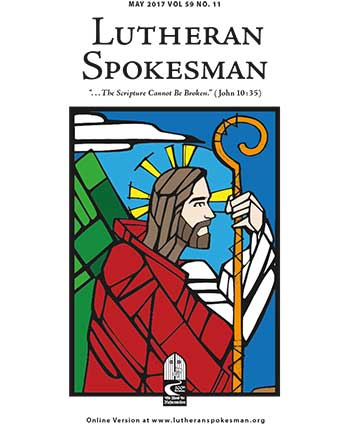“For there is one God, and there is one mediator between God and men,
the man Christ Jesus, who gave himself as a ransom for all.”
(1 Timothy 2:5-6 ESV)
Bible words and phrases are routinely tainted by secular usage. Christians hear one thing, the unregenerate hear another. The challenge is to prevent their misunderstanding from altering our understanding. When Christians, for example, hear the word grace, we understand “God’s undeserved love for sinners.” The world conjures up visions of weightless ballerinas and socially polished debutants. When we hear cross of Christ, we think “victory” and “life.” The world hears “injustice” and “death.” We hear Easter and think “resurrection.” The world sees bunnies.
So it shouldn’t surprise us that the biblical concept of “Christ our Mediator” is tainted by the world’s misunderstanding of both mediator and mediation. In the world’s view, a mediator is someone who stands between two parties that are at odds, and whose job it is to come up with some sort of compromise (mediation) that is fair to both sides. Jesus is not that sort of mediator. He does not reach out to both sides (Creator God and fallen man) seeking mutual concessions and compromise. He does not seek to represent the rights of both parties, nor does He view the two parties as peers. Though He does proclaim the goodness of God to man, He does not extol the virtues of man to God. There is nothing to extol. The mediation that Jesus performs is all one-way. He carries nothing from man to God, for man has nothing to offer. He carries only Himself. He Himself is the good that is brought to God the Father on man’s behalf. That’s exactly what Paul was telling Timothy in the passage quoted above: “. . . who gave himself as a ransom for all.” In that way Jesus is not only the Mediator, He Himself is the mediation. He Himself is that which creates peace. What He then carries to fallen, helpless, powerless mankind is God’s declaration of forgiveness.The Mediation of Christ: A One➜Way Street


